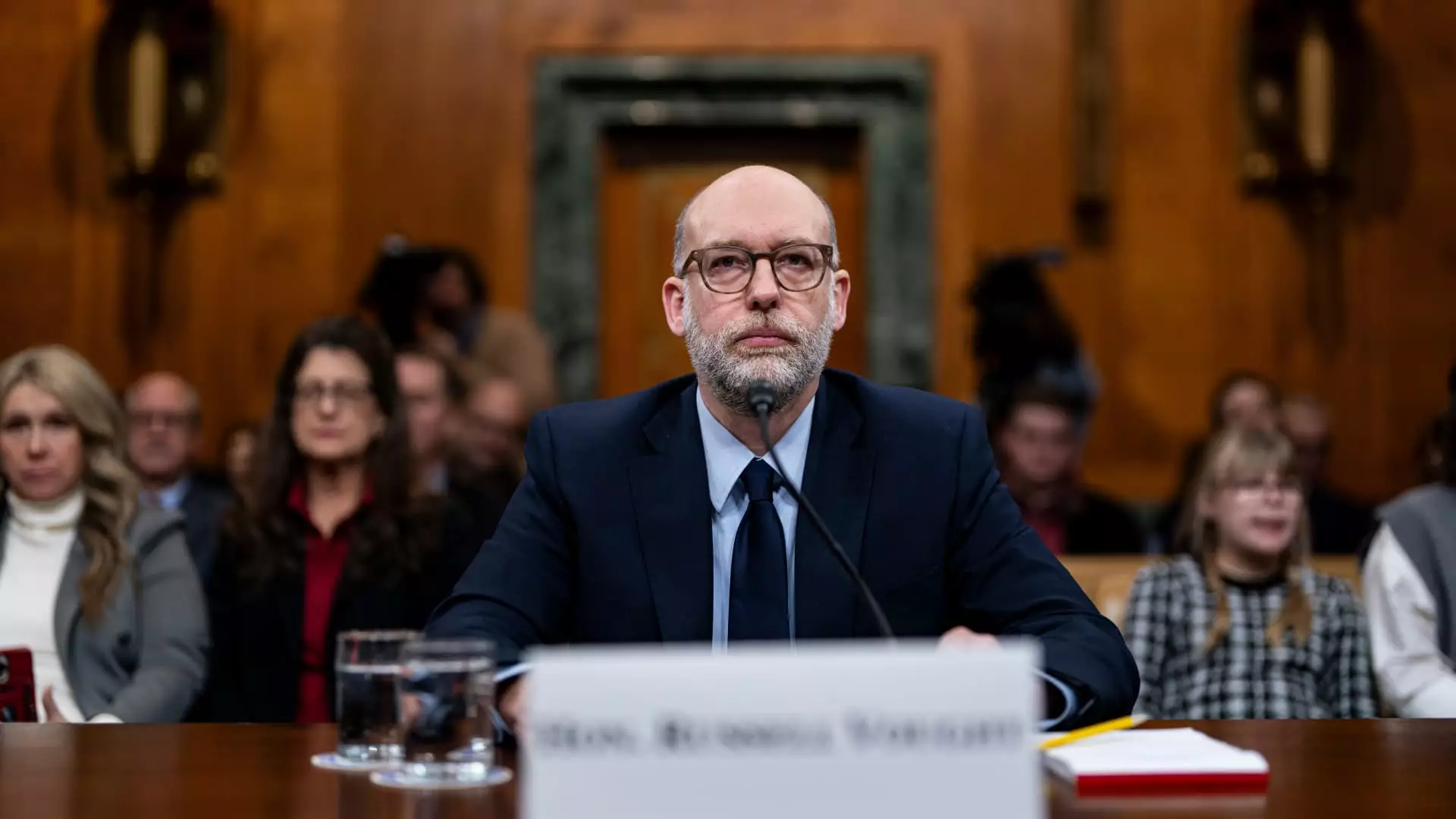In a significant move reflecting the current political climate, the U.S. Senate has confirmed Russell Vought as the budget director, under President Donald Trump’s administration. This decision, made with a narrow 53-47 vote, has far-reaching implications for how federal funding will be allocated and monitored moving forward. Vought, known for his hardline conservative views, is expected to wield substantial influence over government expenditures, an area that has become increasingly contentious in American politics.
Vought’s confirmation has not been without controversy. Throughout his two confirmation hearings, he expressed strong opinions regarding the constitutional validity of a 1974 law which restricts the executive branch’s ability to impound congressionally approved funding. This position has raised eyebrows across the political spectrum, even among some Republicans. His willingness to challenge established norms regarding the separation of powers has drawn critical assessments from Democrats, who have labeled him a “dangerous far-right ideologue.” Such rhetoric underscores the deep divisions in Congress as disagreements about budgetary authority and the allocation of taxpayer dollars intensify.
Immediate Consequences of Vought’s Appointment
The implications of Vought’s confirmation became evident almost immediately. Just days prior to his confirmation, the White House Budget Office issued a memo that froze numerous federal grants and loans. This controversial decision was presented as a necessary step to align federal spending with the administration’s priorities, yet it raised alarms about potential disruptions to essential services that many Americans rely upon. Although the memo was later rescinded and a federal judge intervened to halt the freeze, the initial actions sparked widespread concern about the administration’s handling of government funds and the potential for unilateral executive decisions.
Democratic leaders are actively seeking to frame Vought’s confirmation as a threat to both public services and the democratic process. Senate Democratic leader Chuck Schumer articulated fears that Vought’s association with the Project 2025 initiative signals a broader intent to undermine various federal departments, including the U.S. Agency for International Development (USAID) and the Justice Department. Schumer emphasized that Vought’s actions could adversely affect everyday Americans, painting a picture of a deliberate agenda aimed at eroding essential government functions.
In contrast, Republicans have positioned Vought as a fiscal hawk capable of addressing government inefficiencies. Senate Majority Leader John Thune expressed confidence in Vought’s leadership, with expectations that he would prioritize reducing wasteful spending and reinforcing financial accountability within federal programs. This support suggests a party-wide commitment to a broader agenda of fiscal conservatism, even in the face of widespread criticism regarding the potential societal impacts of such policies.
The confirmation of Russell Vought has set the stage for a contentious era in federal budgeting. With a White House willing to push boundaries and a divided Senate, the future of government funding remains tenuous. As the administration moves forward with its strategic priorities, the call for fiscal conservatism will collide with concerns over government accountability and public service integrity, ultimately shaping the American political landscape for years to come.


Leave a Reply